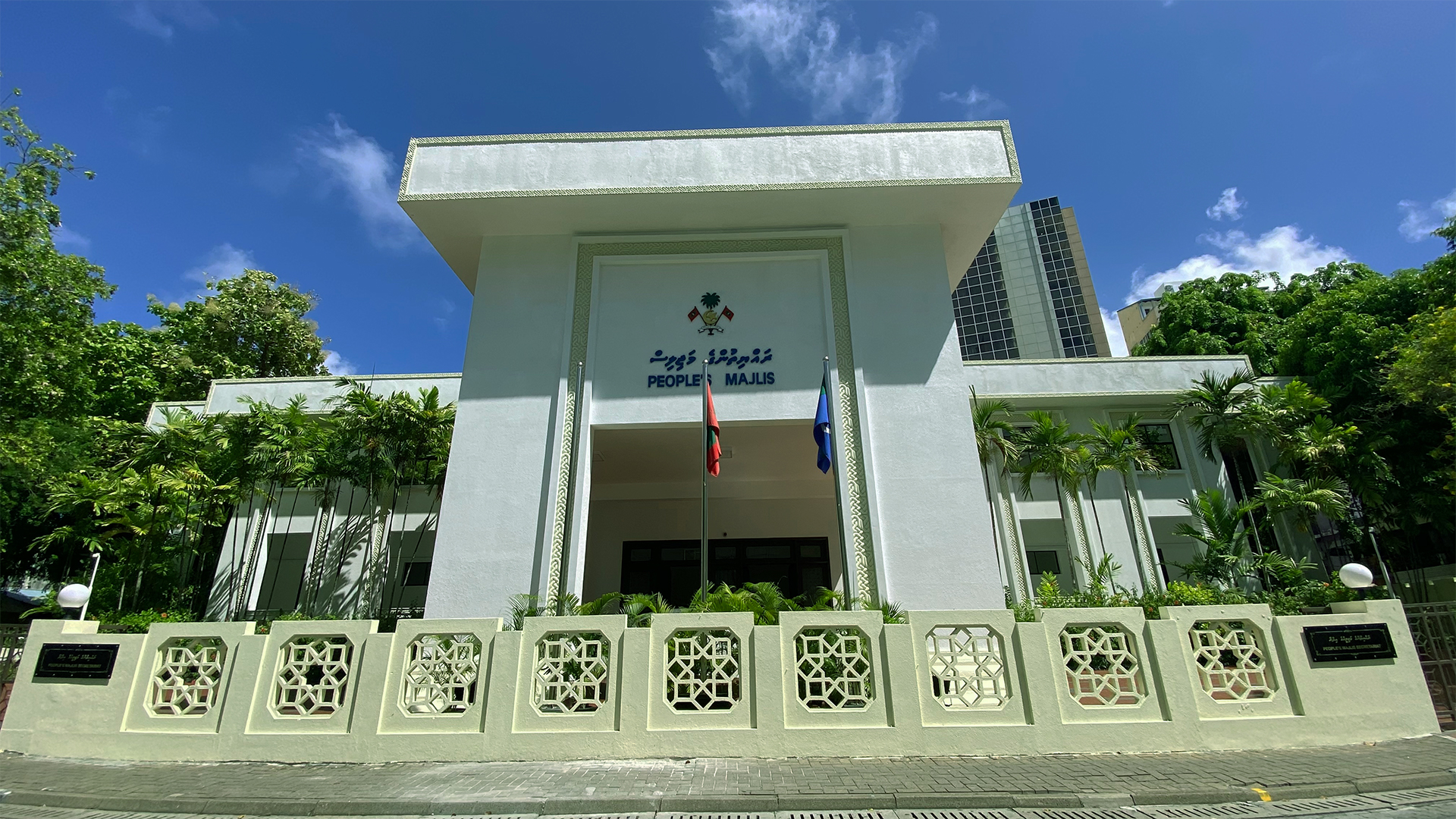LocalPeople's Majlis
Maldives Parliament Extends Contracts of Senior Officials Amid Controversy
25/11/2024
Zain Rasheed


Share
Malé, Maldives — The Maldives Parliament has voted to extend the contracts of Secretary General Fathimath Niusha, Counsel General Fathimath Filza, and Sergeant-at-Arms Tholhath Hassan for another five years. The decision has drawn criticism, with opponents claiming it violates Article 18 of the Parliament Standing Orders, which mandates a public call for applications to these posts.
During the parliamentary session, Speaker Abdul Raheem defended the vote, stating it followed the precedent set by the 19th Parliament in 2019. At that time, the contracts of the same officials were extended without a public call for applications. However, several members of the 19th Parliament had objected, arguing that the decision contradicted Article 18, which requires the Speaker to publicly call for applications and submit eligible names for a parliamentary vote.
Despite these objections, the Parliament Secretariat justified the decision in 2019 by interpreting Article 18 as not requiring a public call. Similar concerns were raised before today’s session, but the vote proceeded without a public call for applications.
When approached for a comment on the issue, the Parliament Secretariat declined to respond.
Standing Order Controversies
This is not the first time the Parliament Secretariat’s interpretation of the Standing Orders has been questioned. In 2023, the Maldivian Democratic Party (MDP) challenged the secretariat in the Supreme Court over its interpretation of a Standing Order article related to no-confidence motions against the Speaker and Deputy Speaker.
The Supreme Court ruled against the secretariat, stating its interpretation of the Standing Order was incorrect. This precedent has raised concerns about the secretariat’s current handling of Article 18 and whether the extensions of the contracts for the three senior officials align with parliamentary rules.
Public Concerns
The issue has reignited debates over transparency and adherence to procedural rules in parliamentary operations. Critics argue that bypassing public calls for applications undermines accountability and raises doubts about the fairness of appointments to key parliamentary positions.
As the controversy unfolds, calls for greater oversight of parliamentary procedures are expected to grow, particularly in light of the Supreme Court’s previous rulings against the secretariat’s interpretations.
Comments
Related